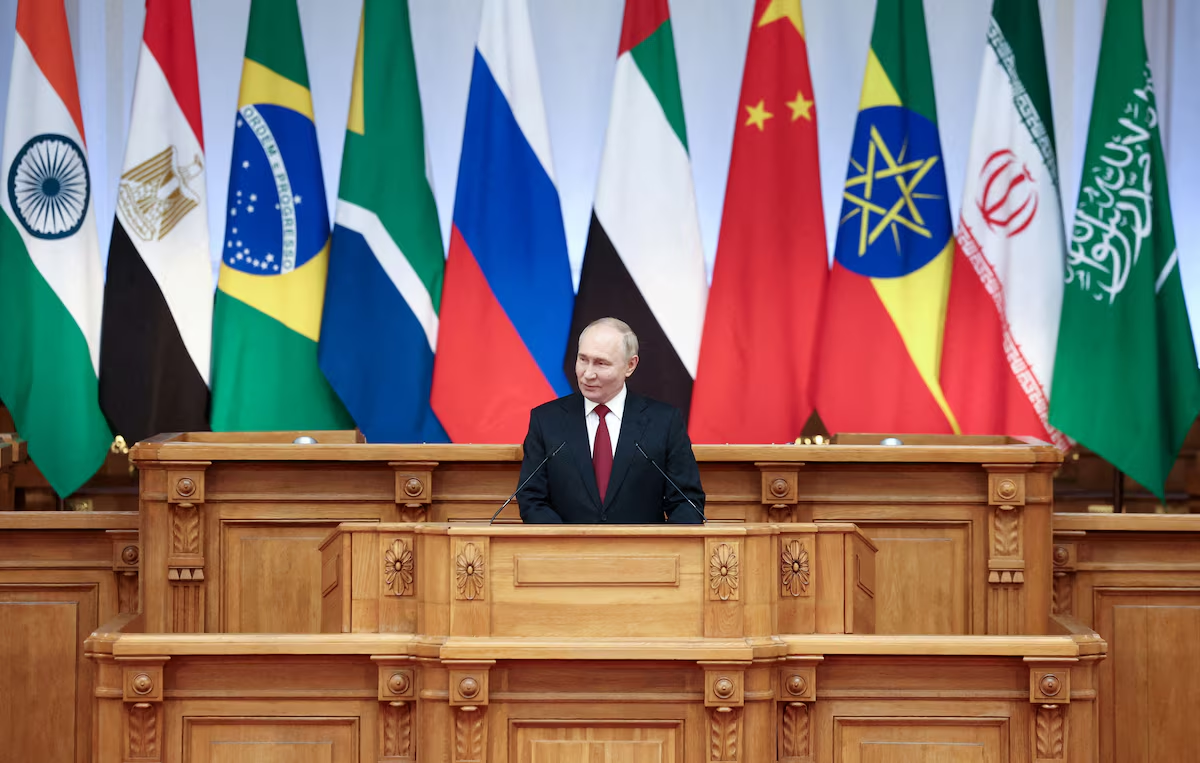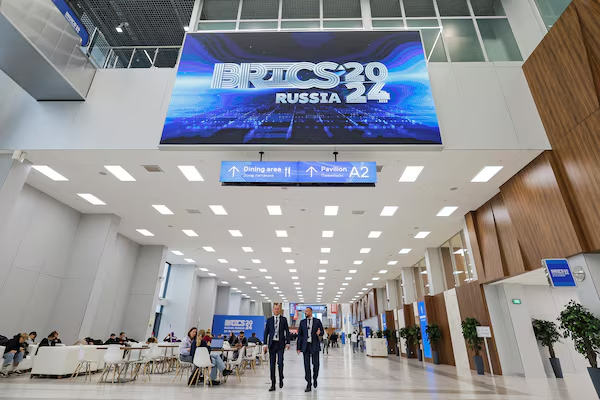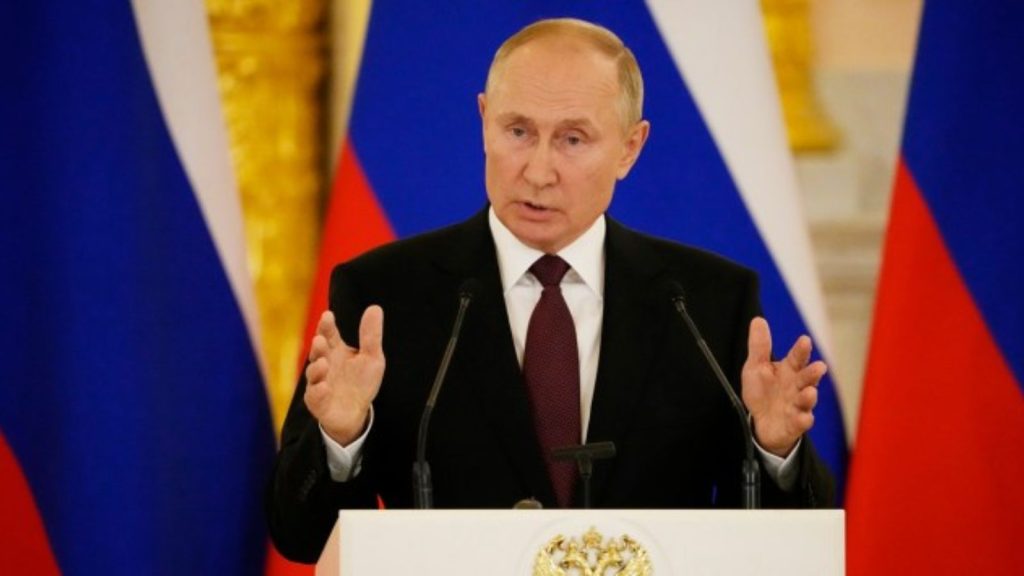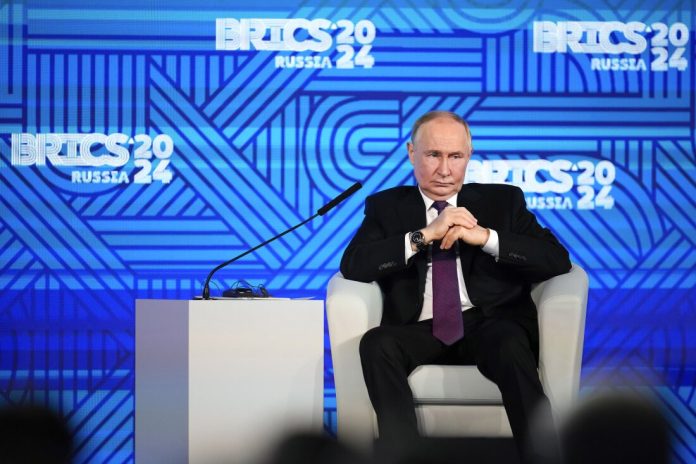Russia is looking to use the upcoming BRICS summit to highlight the growing influence of non-Western nations, but key members of the group, including China, India, and Brazil, are urging President Vladimir Putin to explore a peaceful resolution to the ongoing war in Ukraine. The BRICS group, now representing 45% of the world’s population and 35% of the global economy when measured by purchasing power parity, is increasingly seen as a significant counterweight to Western dominance. However, more than half of its economic power comes from China, which underscores the group’s internal dynamics.
In a pre-summit interview with reporters from BRICS countries, Putin stated that the bloc does not position itself against any other group but rather focuses on cooperation based on shared values and mutual interests. “This is an association of states that work together based on common values, a common vision of development, and, most importantly, the principle of taking into account each other’s interests,” Putin said, emphasizing the economic shift from the West to BRICS nations as a simple reality.

The BRICS summit is taking place amidst several global crises, including wars in both the Middle East and Ukraine, a slowing Chinese economy, and concerns that the U.S. presidential election could lead to new trade tensions. Putin, who launched a full-scale invasion of Ukraine in 2022 after years of conflict in the country’s eastern regions, faced numerous questions from BRICS journalists about the prospects for peace. He made it clear that while Moscow is open to talks, Russia will not relinquish control over the four regions in eastern Ukraine that it claims to have annexed, despite not fully controlling all the territories.
Reports from Moscow suggest that while discussions about a potential ceasefire are increasing, no concrete steps have been taken, and much of the world is waiting for the outcome of the U.S. presidential election on November 5. The Kremlin hopes to gauge how the election might influence future Western involvement in the war. Russia currently controls about 20% of Ukraine, including Crimea, which it annexed in 2014, and large parts of the Donetsk, Luhansk, Zaporizhzhia, and Kherson regions. Putin suggested that the West now recognizes that Russia will ultimately prevail, but he expressed willingness to return to discussions based on the draft ceasefire agreements reached in Istanbul in April 2022.
Ahead of the summit, Putin held informal talks with the President of the United Arab Emirates, Sheikh Mohammed bin Zayed Al Nahyan, at his residence near Moscow. The discussions lasted until midnight, signaling the importance of diplomatic efforts involving key Middle Eastern players. Both Sheikh Mohammed and Saudi Crown Prince Mohammed bin Salman, who have played roles in mediating the Ukraine conflict, have been praised by Putin for their peace efforts. Although bin Salman will not attend the summit, Sheikh Mohammed affirmed his country’s commitment to continuing its mediation efforts, telling Putin, “We are ready to make any efforts to resolve crises and in the interests of peace, in the interests of both sides.”

Chinese President Xi Jinping and Indian Prime Minister Narendra Modi will be attending the summit in Kazan, but Brazilian President Luiz Inacio Lula da Silva has been forced to cancel his trip on medical grounds after suffering a minor brain hemorrhage. Lula’s absence will be notable, especially given Brazil’s growing role within BRICS. Nonetheless, the summit is expected to proceed with a focus on discussions around economic growth and geopolitical cooperation within the bloc.
The term BRIC was first coined in 2001 by former Goldman Sachs economist Jim O’Neill to highlight the massive economic growth potential of Brazil, Russia, India, and China. Over time, the group began meeting formally, eventually adding South Africa, and recently expanding further to include Egypt, Ethiopia, Iran, and the United Arab Emirates. Saudi Arabia, while not a formal member, has also expressed interest in joining the group. According to the International Monetary Fund, BRICS’ share of global GDP is expected to grow to 37% by 2030, while the share of the G7 major Western economies will decline to about 28%, down from 30% this year.
Russia, increasingly isolated from Western financial systems due to sanctions over its actions in Ukraine, is pushing BRICS members to develop an alternative platform for international payments that would be resistant to Western economic pressures. Moscow hopes that BRICS could offer a solution to bypass sanctions and create a more independent economic network.

However, despite shared interests, there are significant internal divisions within BRICS that could complicate future cooperation. China and India, both major buyers of Russian oil, have a fraught relationship due to border disputes and geopolitical competition. Additionally, the inclusion of Iran has created tension with Arab nations like Saudi Arabia and the UAE, highlighting the complexities of BRICS’ attempts to build a cohesive front in global affairs. These divisions may challenge the bloc’s ability to present a united strategy on international issues, including the war in Ukraine and the formation of a new global financial order.
As the BRICS summit approaches, the world will be watching closely to see whether it will mark any significant diplomatic breakthroughs, particularly concerning Ukraine. With Putin eager to showcase the rising influence of BRICS and its potential to reshape the global order, the summit may set the stage for future shifts in both economic and geopolitical alliances. Nonetheless, the internal contradictions within the bloc and the ongoing conflicts involving Russia will likely continue to dominate discussions.




